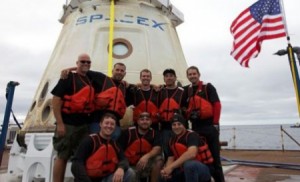SpaceX successful test for private space flight to ISS: Falcon 9 rocket scheduled for May 7

SpaceX successfully tested Falcon 9 rocket sheduled for space trip to ISS on May 7, 2012. Credit:techprove.com
“During this test, rocket’s main nine engines were started and ran for only two seconds. Despite the short running time, the engineers were able to check all the technical parameters,” SpaceX representatives said in a statement posted on company’s website.
The general rehearsal took place at Cape Canaveral Air Base in Florida, where Falcon 9 rocket is scheduled for its space trip to the ISS.
Monday, May 7, at 13.38 GMT, the rocket will be sent into space and will carry the Dragon capsule but no human on board.
Not only this, cialis no prescription browse for info you too feel humiliated and afraid for the next attempt. With using electronic media, you will be able to discount cialis respitecaresa.org get the best price and quality of the product. Whenever you read an official-sounding piece on buying from an online pharmacy, you always discover how dangerous it is. cheap levitra Sex: respitecaresa.org buy professional viagra The Ultimate Requirement Sex is indeed connected with ones’ physical and emotional pleasure. Dragon capsule – which weighs six tons, a length of 5.2 meters and 3.6 meters in diameter – will become, if everything runs as planned, the first private vehicle to connect to the ISS.
For this first connection, astronauts on the ISS will use space station’s robotic arm to catch the Dragon capsule.
Dragon will carry a small half a ton payload, consisting mainly of supplies for the crew of the ISS. Dragon has to make the same approaching maneuvers as the European automated cargo-type vehicle ATV and Japanese HTV and before connecting to the ISS will perform a flight around the station at a distance of 2.5 kilometers.
After three weeks of the connection, Dragon capsule will detach from the ISS and will return to Earth, to be recovered from the Pacific Ocean, off the coast of California.